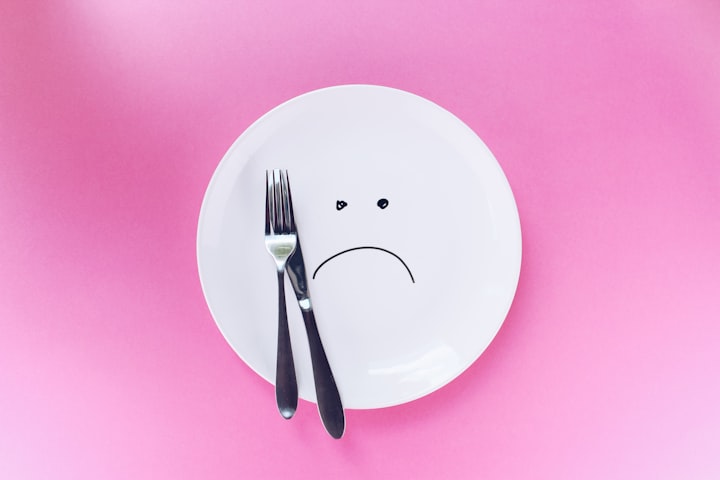
Introduction
You've probably been hearing a lot about the keto diet lately. Maybe you're even thinking of giving it a try. But what, exactly, is the keto diet? And is it right for you?
In this comprehensive guide, we'll answer all your questions about the keto diet—what it is, how it works, and whether or not it's the right choice for you. Plus, we'll give you a few tips on how to get started on the keto diet and make sure you're on your way to success.
What Is the Keto Diet?
The keto diet is a popular low-carb, high-fat diet that can help you lose weight. On the keto diet, you eat a lot of healthy fats, a moderate amount of protein, and very few carbs—usually under 20 grams per day. When your body doesn't have enough carbs to burn for energy, it starts burning fat instead. This causes you to lose weight and body fat, and also helps control blood sugar levels and appetite.
Benefits of the Keto Diet
The keto diet has become very popular in recent years. And for good reason: it offers a range of benefits that can help you lose weight and feel better overall.
Here are some of the main benefits of the keto diet:
You'll lose weight. The keto diet is very effective for weight loss. It helps you burn more calories and lose more body fat than other diets.
You'll have more energy. The keto diet provides your body with all the energy it needs, without the sugar crashes associated with other diets.
You'll improve your cholesterol levels. The keto diet can help lower your bad cholesterol levels and raise your good cholesterol levels.
You'll improve your blood sugar levels. The keto diet can help lower your blood sugar levels and improve your diabetes control.
You'll reduce inflammation throughout your body. The keto diet can help reduce inflammation in your body, which can lead to many health benefits.
Get started with Keto actives
What Can You Eat on the Keto Diet?
The keto diet is all about low-carb, high-fat eating. This means that you'll be eating mostly proteins and healthy fats, and limiting your intake of carbs.
But what does that look like in practice? You can basically eat any protein and any fat on the keto diet. This includes meat, poultry, fish, eggs, cheese, butter, nuts and seeds. As for carbs, you'll want to stick to leafy greens, cruciferous vegetables, berries and other low-carb fruits.
So while the keto diet is restrictive when it comes to carbs, it's actually quite versatile when it comes to food choices. You can pretty much eat whatever you like as long as it fits into your daily carb limit.
Keto Actives
Keto Actives is a food supplement supporting weight loss. We specifically recommend it to those on the ketogenic diet. It contains 8 components combined in one foolproof supplement, which helps in the reduction of fatty tissue and stops its storage. Moreover, Keto Actives helps in maintaining the proper cholesterol and sugar blood levels. The supplement is also recommended for those persons with an excessive appetite, as the extracts and minerals included in it suppress hunger.
How to Get Started on the Keto Diet
Now that you know the basics of the keto diet, it’s time to get started. Before you begin, it’s important to remember that everyone is different and might require slightly different approaches. So, listen to your body and make sure you enjoy what you’re eating!
The first step is to choose which types of keto-friendly foods you want to include in your meal plan. To help you get started, here are some of the most popular foods on the keto diet:
Fatty fish: salmon, mackerel, tuna
Nuts and seeds: almonds, walnuts, chia seeds
Cheese and eggs
Low-carb veggies: broccoli, spinach, cauliflower
Avocados and olives
Once you have selected the foods for your weekly meal plan, be sure to stock up on them so that they are available when cravings strike. It's also a good idea to keep a few easy meals like salad with grilled chicken or a bowl of soup on hand for quick lunches or dinners.
Common Mistakes When Starting the Keto Diet
As a beginner to the keto diet, you might be making some common mistakes that could impede your progress. One of the biggest is not counting your macros or following the 70/25/5 rule—70 percent of your calories from fat, 25 from protein and 5 from carbs.
Another common mistake is not drinking enough water. This is especially important if you're doing intense exercise while on the keto diet, since dehydration can slow down your metabolism and prevent weight loss.
Eating too much protein is a third mistake to avoid. We all know protein helps with muscle growth and repair, so it can be tempting to load up on high-protein foods. But if you overeat on these, it will throw off your macronutrient ratio and can lead to an increase in body fat percentages instead of weight loss.
You'll also want to make sure you don't get too obsessed with tracking your progress, as this can lead to frustration and disappointment when the scale doesn't move fast enough for you. Lastly, this diet is not designed for long-term use; it's mostly meant for short-term weight loss goals.
What to Expect When Transitioning to a Keto Diet
Transitioning to a keto diet can be hard, and it's important to know what to expect before making the switch. First of all, when you first start out, you may feel tired and have decreased energy levels. This is totally normal and you will eventually adjust as your body adapts to the new diet.
While on this diet, you might experience what's called the "keto flu", which can include nausea, trouble sleeping and headaches. This usually passes within a few days or weeks and is your body's way of adjusting to the new diet.
You may also find yourself experiencing sugar cravings in the beginning as your body is used to getting sugar from carbs. The best way to combat these cravings is to stay hydrated, get enough sleep, avoid processed foods and include plenty of healthy fats in your diet. With time and patience, your body will become accustomed to the changes you’re making.
So that’s the keto diet in a nutshell. It can seem overwhelming at first, but it’s really not that complicated. The most important thing to remember is to start slow and gradually increase your carbohydrate intake. And, of course, be sure to consult with your doctor before starting any new diet.
***Disclosure*** this post contains affiliate links. We may make a commission at not additional cost to you. Thanks for your support.






Comments
There are no comments for this story
Be the first to respond and start the conversation.